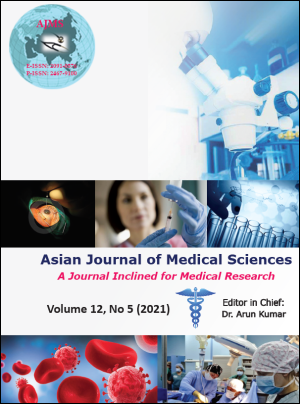Assessing the knowledge of trainee residents for liver involvement and related issues in COVID-19 pandemic
Keywords:
Knowledge, COVID-19, Liver, Gastroenterology, Internal Medicine, Trainees, ResidentsAbstract
Background: Regular educational activities have suffered since the start of COVID-19 pandemic. New data has been emerging regularly regarding COVID-19 and the optimal way of care for patients with COVID-19 infection. Emphasis upon dispensing knowledge in current pandemic times should be made.
Aims and Objective: We assessed the knowledge of internal medicine and gastroenterology trainees regarding liver involvement and related issues in the current COVID-19 pandemic.
Materials and Methods: This online survey comprised of 10 questions designed to examine the basic knowledge of Sars-Cov-2 virus, knowledge regarding liver involvement in COVID-19, and the ability to decide on patient care.
Results: A total of 100 responses were collected. Most of the responses were from Pakistan (n=75). More than 80% of trainees responded correctly regarding the accurate indication of endoscopic procedures during COVID-19 pandemic, absence of ACE-II receptor expression on astrocytes, upper respiratory secretions being an eligible sample for SARSCOV- II, avoiding regular outpatient follow up, avoiding hydroxychloroquine as a prophylactic drug, and azithromycin in decompensated cirrhosis, continuing beta-blockers and lactulose in a decompensated patient, melena being an accurate indication for screening endoscopy and the choosing right set of PPEs. Less than 50% of responders knew correctly regarding NAFLD being a notorious factor for COVID-19 related complications, ACE-II receptor expression by cholangiocytes and enterocytes, saliva and stool being an eligible sample for SARS-COV-II detection, palliative approach as an appropriated management step for decompensated-CLD patients and history of ascites as an appropriate indication for screening endoscopy. GI
trainees performed better in some areas of knowledge.
Conclusions: Trainees were updated in many aspects of the recent guidance in the management of COVID-19 but there were many lacunae in the knowledge. So, continuous medical education activities are essential to keep the residents updated about the changing developments in the management of COVID-19.
Downloads
Downloads
Published
How to Cite
Issue
Section
License
Authors who publish with this journal agree to the following terms:
- The journal holds copyright and publishes the work under a Creative Commons CC-BY-NC license that permits use, distribution and reprduction in any medium, provided the original work is properly cited and is not used for commercial purposes. The journal should be recognised as the original publisher of this work.
- Authors are able to enter into separate, additional contractual arrangements for the non-exclusive distribution of the journal's published version of the work (e.g., post it to an institutional repository or publish it in a book), with an acknowledgement of its initial publication in this journal.
- Authors are permitted and encouraged to post their work online (e.g., in institutional repositories or on their website) prior to and during the submission process, as it can lead to productive exchanges, as well as earlier and greater citation of published work (See The Effect of Open Access).




